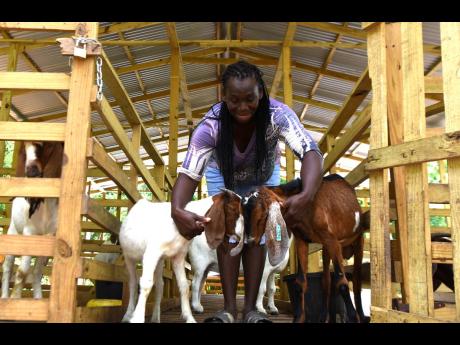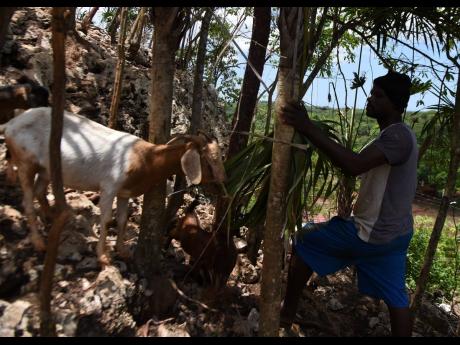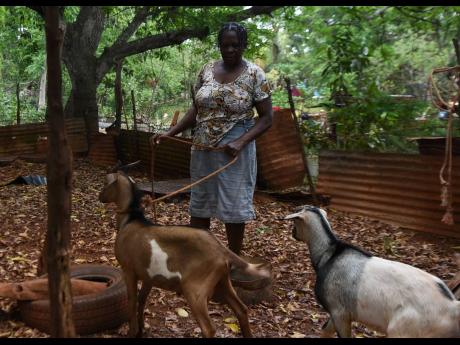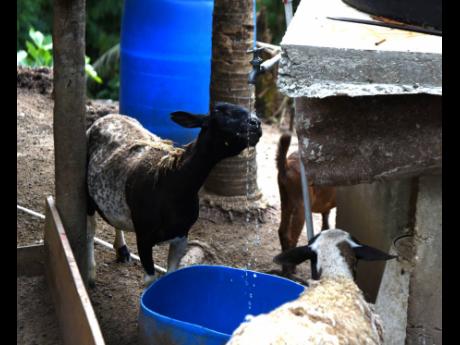Goat farmers look for kick from breeding drive
Goat farmers across St Catherine have welcomed an initiative by the Government to pump $50 million into an artificial insemination and embryo-transfer programme.
Jamaica’s demand for goat meat is being met largely by imports, which accounts for 85 per cent of its consumption.
Between 2015 and 2019, 1.002 million kilograms of goat meat, valuing US$3.7 million, was imported.
More than 6,000 registered small ruminant farmers will be provided with up to three inseminations from any breed of their choice and an ovum or embryo transfer for selected animals completely free of cost.
The objective is for a rapid multiplication of the small ruminant population to satisfy the country’s protein demand.
Renford Foster, 30, has been rearing goats for the past five years in Cherry district.
Last Christmas, he lost seven goats because they were not dewormed on time.
He now has approximately 30 goats, which are a mixture of Boers and Nubians.
“It’s a good idea. I usually buy a hybrid rammy fi ‘bout $100,000, and that can give me more than 10 kid. Dem breed every three months,” Foster told The Gleaner.
The village ram has been long used by farmers, who often pay for its services to impregnate their does.
Foster said that Jamaicans have a preference for local goat meat but resort to imported chevon because it is much cheaper.
Domestic goat meat is sold for an average of $900 per pound, while imported variety fetch prices as low as $670.
“Local goat meat is stronger – more nutrients, because the goats eat the grass. It’s quality meat,” Foster said.
The livestock farmer believes that boosting supply of local goat meat would suppress prices and drive up consumption.
Wesley Walters, also of Cherry district, lauded the initiative and is willing to make three of his goats available when the programme begins.
The 67-year-old, who has been raising goats for more than three decades, told The Gleaner that he tends to a limited herd now, as he sold most of them and a few died.
“I always like to have some goats. I have just about 11 now. It’s not hard to breed the goats because they are always around the rammy, and sometimes the rammy put dem in heat before time,” he said.
Like Foster, he also purchases rams, but not primarily for breeding.
BETTER MEAT
“I will give the insemination a chance. I really believe in the common goat; it’s better meat,” Walters said.
His wife, Cynthia, with whom he shares the farm, said that the insemination drive is a step in the right direction.
“When you can’t get the goat meat, the likkle that is there will be expensive,” she said.
Cynthia added that a successful insemination programme could also mean increased income opportunities for Jamaicans, as more farm help could be hired in the long run.
Dahlia Griffiths, who resides in Williamsfield, takes care of 42 head of goats daily.
“I really don’t have a problem with that plan. How it is now, you really have to watch the goats and see when they call and then put them with the ram, because it’s usually locked away,” she said.
Griffiths is hopeful that the insemination and embryo-transfer programme will reap favourable results.
“If every farmer has the opportunity to grow more goats and it’s not scarce like now, the price will go down. However, if we keep on importing, people will always go for the cheaper option,” she said.




